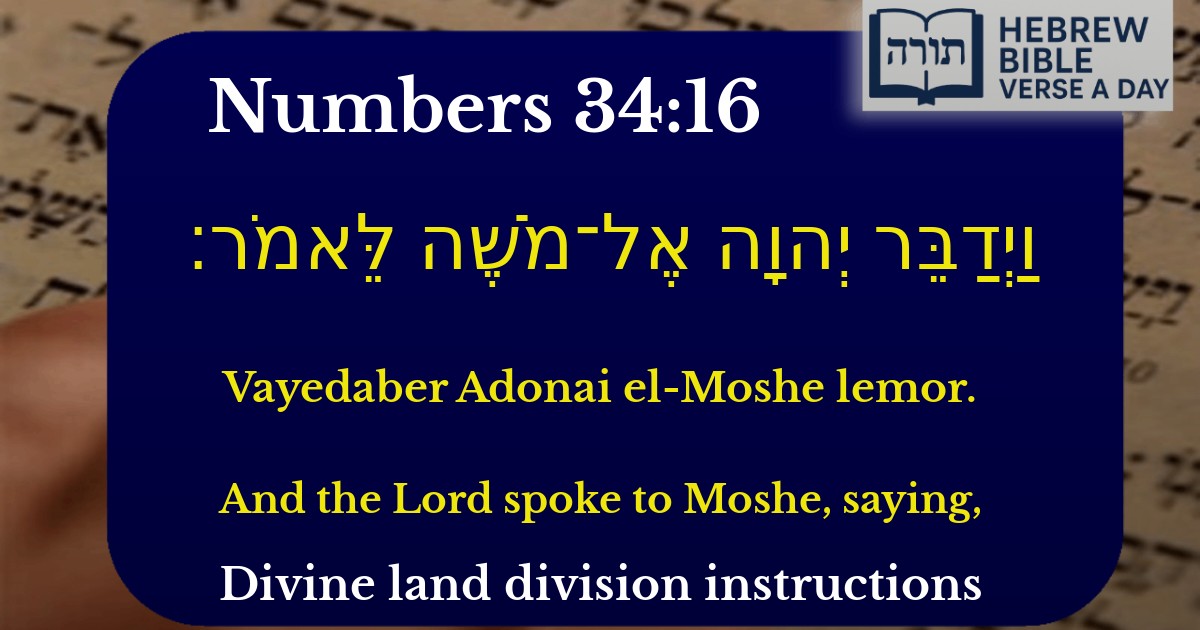Frequently Asked Questions
Q: What does it mean that 'the Lord spoke to Moshe'?
A: This phrase appears frequently in the Torah to indicate divine communication. According to Rashi and other commentators, when the Torah says 'the Lord spoke to Moshe,' it means that Hashem communicated with Moshe in a clear, direct manner, often to convey commandments or instructions for the Jewish people.
Q: Why does the Torah repeat 'saying' after 'the Lord spoke to Moshe'?
A: The word 'saying' (לֵּאמֹר) teaches us that Moshe was commanded to relay these words to others, usually to the Jewish people or to Aharon. The Talmud (Yoma 4b) explains that this term emphasizes the transmission of the message to its intended audience.
Q: How is this phrase significant in the Torah?
A: This introductory phrase establishes the divine origin of the commandments that follow. The Rambam (Maimonides) includes belief in prophecy as one of the 13 Principles of Faith, and this verse exemplifies how Moshe, the greatest prophet, received direct communication from Hashem to guide the Jewish people.
Q: Does Hashem still speak to prophets like Moshe today?
A: According to Jewish tradition, the era of prophecy ended with the later prophets of Tanach. The Talmud (Sotah 48b) states that after the destruction of the First Temple, prophecy was given over to sages and children. Today, we rely on Torah study and the wisdom of our rabbis to understand Hashem's will.
Q: What can we learn from this verse about leadership?
A: This verse teaches that true Jewish leadership, like Moshe's, is based on faithfully transmitting Hashem's word. The Midrash (Shemos Rabbah 3:15) emphasizes that Moshe's humility and accuracy in conveying divine messages made him the ideal leader. We learn that leaders must be humble conduits for truth.


The Divine Communication to Moshe
The phrase "וַיְדַבֵּר יְהוָה אֶל־מֹשֶׁה לֵּאמֹר" ("And the Lord spoke to Moshe, saying") appears frequently in the Torah, marking the transmission of divine commandments. Rashi (Shemot 6:2) explains that this introductory formula emphasizes the direct and unmediated communication between Hashem and Moshe, distinguishing Moshe's prophecy from that of other prophets. Unlike other nevi'im who received messages through visions or dreams, Moshe heard Hashem's words clearly, as if speaking face-to-face (Bamidbar 12:8).
The Significance of "לֵּאמֹר"
The word "לֵּאמֹר" ("saying") is interpreted by the Midrash (Sifrei Bamidbar 7:47) as an instruction for Moshe to relay the message to Bnei Yisrael. Rambam (Hilchos Yesodei HaTorah 7:6) elaborates that Moshe's role as the intermediary was essential—he was commanded not only to receive the Torah but to teach it to the nation. The Kli Yakar (Shemot 19:3) adds that this term underscores Moshe's faithfulness in transmitting the divine word without alteration.
Context in the Chain of Tradition
This verse exemplifies the principle of מסורה (transmission of tradition), as discussed in Pirkei Avos (1:1): "Moshe received the Torah from Sinai and transmitted it..." The Rambam (Introduction to Mishneh Torah) emphasizes that every mitzvah in the Torah originates from this direct communication, ensuring its authenticity. The Talmud (Makos 23b) further notes that the 613 mitzvos were all conveyed through such divine speech to Moshe.
Spiritual Implications